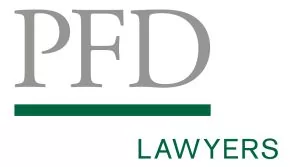"The Internet has no borders - its natural habitat is global." Those are the words of the Supreme Court of Canada in Google Inc. v. Equustek Solutions Inc., 2017 SCC 34 (Equustek decision). In the majority decision (7-2) rendered on June 28 2017, the Court found that Canadian courts could grant a global injunction against a non-party to litigation when the order is fair and equitable in the circumstances of the case.
CONTEXT
Equustek is a small technology company based in British Columbia that designs and manufactures communication interfaces for the integration of factory automation equipment. On April 12, 2011, Equustek took legal action against defendant Datalink for infringement of its intellectual property rights. Injunctions were issued to stop Datalink from using intellectual property belonging to Equustek. However, Datalink failed to comply with these injunctions: it ceased its Canadian-based activities and its executives could not be located.
Datalink continued to conduct its business activities from an unknown location, selling counterfeit products online to customers around the world. Equustek further litigated and obtained additional injunctions, including a Mareva injunction that froze all of Datalink's assets, including its complete product inventory, but was never able to enforce its intellectual property rights.
Having exhausted all avenues of recourse against Datalink, Equustek turned once again to the British Columbia courts for an interlocutory injunction to prohibit Google from displaying any part of Datalink's Web sites in its results worldwide.
The lower court granted the injunction, noting that Google controls 70 to 75% of the world's Internet searches and that Datalink's capacity to sell its counterfeit products was largely determined by the fact that customers could find its Web sites online through Google's search engine. The British Columbia Court of Appeal dismissed Google's appeal, upholding the initial decision.
RULING BY THE SUPREME COURT OF CANADA
The Supreme Court also dismissed the appeal and upheld the global interlocutory injunction against Google.
The Court determined that the requirements to grant an interlocutory injunction had been met and then found that, despite its global reach, the remedy that was sought was the only effective means to stop the damage suffered by Equustek.
With regard to the issue of the jurisdiction of a Canadian court over a non-party to litigation, the Supreme Court considered that the fact that Google carries on a business in Canada through advertising and a search engine is sufficient to establish the territorial and personal jurisdiction of the Canadian court. It also confirmed that courts may issue injunctions in any case in which they are just and convenient, including against a non-party, and that failure to comply constitutes an obstruction of justice.
In the case at hand, the Court ruled that, to ensure the effectiveness of the injunction that was sought, the order had to be applied where Google operates: around the world. It also confirmed that the harm to Google was minimal. The Court rejected Google's arguments that the injunction interfered with freedom of expression by requiring the removal of certain Web sites.
IMPACTS OF THE EQUUSTEK CASE
In an age in which borders are dissolving and the Internet makes it possible to share information at an unprecedented rate, the Equustek case provides an interesting alternative for Canadians whose intellectual property rights are infringed upon by unscrupulous counterfeiters seeking to capitalize on the Internet's global reach to avoid territorial legal responsibility.
The ruling confirms that businesses arising from new technologies are not above the law. Still, this type of injunction against a non-party is only issued in exceptional cases. It may be denied when other effective means that may be taken directly against the counterfeiter to stop the infringement of intellectual property rights may be used.
The decision will likely pave the way for orders sought by Canadian businesses that suffer damage similar to the harm experienced by Equustek.
About Mackrell International - Canada - Prévost Fortin D'Aoust is a Quebec based business law firm with offices in Montreal, Saint-Jérôme, Boisbriand, Sainte-Agathe-des-Monts and Laval, and a member of Mackrell International. Mackrell International - Canada is comprised of four independent law firms in Alberta, British Columbia, Ontario and Quebec. Each firm is regionally based and well-connected in our communities, an advantage shared with our clients. With close relations amongst our Canadian member firms, we are committed to working with clients who have legal needs in multiple jurisdictions within Canada.
This article is intended to be an overview and is for informational purposes only.



